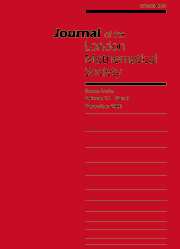Article contents
PLAIN REPRESENTATIONS OF LIE ALGEBRAS
Published online by Cambridge University Press: 05 July 2001
Abstract
In this paper we study representations of finite dimensional Lie algebras. In this case representations are not necessarily completely reducible. As the general problem is known to be of enormous complexity, we restrict ourselves to representations that behave particularly well on Levi subalgebras. We call such representations plain (Definition 1.1). Informally, we show that the theory of plain representations of a given Lie algebra L is equivalent to representation theory of finitely many finite dimensional associative algebras, also non-semisimple. The sense of this is to distinguish representations of Lie algebras that are of complexity comparable with that of representations of associative algebras. Non-plain representations are intrinsically much more complex than plain ones. We view our work as a step toward understanding this complexity phenomenon.
We restrict ourselves also to perfect Lie algebras L, that is, such that L = [L, L]. In our main results we assume that L is perfect and [sfr ][lfr ]2-free (which means that L has no quotient isomorphic to [sfr ][lfr ]2). The ground field [ ] is always assumed to be algebraically closed and of characteristic 0.
- Type
- Research Article
- Information
- Copyright
- The London Mathematical Society 2001
- 4
- Cited by


